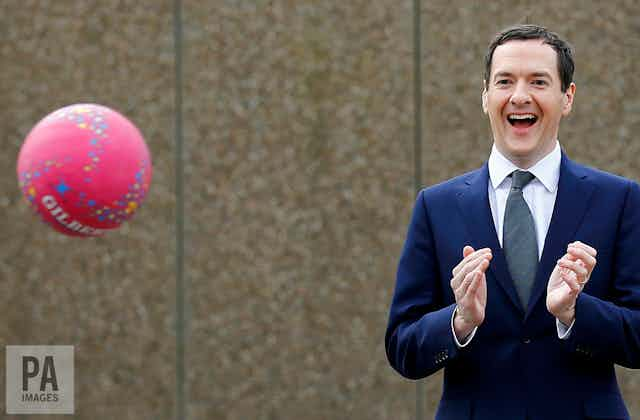In announcing the former chancellor, George Osborne, as its new editor, the London Evening Standard continues a strong tradition of political elites having easy access to employment within the media elite. They sometimes nab these jobs after their political careers have ended and, sometimes, they just do them on the side.
In Osborne’s case, it’s hard to believe that his unremarkable year as an aspiring journalist in the early 1990s was what attracted the Standard. He, like others, has been given a job many professional journalists dream of, not because of his experience in the field but because of his career in politics.
Others who have recently trodden the path between political and media elite can at least be said to have some professional merit to warrant the roles they received. Most notably, former education minister and sitting MP Michael Gove has worked for and is once again in the employment of The Times. Boris Johnson did a stint as Spectator editor, too, before becoming foreign secretary. Johnson also notably served as the Brussels correspondent for The Telegraph, a stint which likely prepared him well for his later frontline role campaigning for Brexit.
Osborne however, in terms of professional merit for such a prestigious media job, has more in common with LBC’s Nigel Farage than his Conservative Party colleagues. Farage – famously a commodities trader before turning his hand to politics – cannot be rationally explained as having deserved influential job in broadcasting without considering the appeal of his political reputation. Yet he finds himself at the helm of a hour-long nightly radio show on LBC.
A fine line
So Osborne is by no means the first (or likely the last) member of the political elite to slide effortlessly across the line into the media elite. Indeed, even a cursory glance across British history sees that line being frequently crossed. Politicians used to have much more access to media than isolated jobs as columnists or editors. As the historian JA Thomas once noted, the newly elected parliament in 1906 was home to dozens of MPs who also owned their own newspapers.
Just over a decade later, David Lloyd George – Britain’s last Liberal prime-minister – would actually buy a daily newspaper, the Chronicle, to try to ensure a favourable press outlet for his politics. Going further back, the British press of the early 19th century was only classed as legal if it had government approval in the form of paying certain taxes and stamp duties. Anyone wishing to work on or launch a newspaper had to quite literally get the government stamp of approval.

Into more recent history, it is often forgotten that a newspaper owner was part of Winston Churchill’s wartime government. First as minister of aircraft production and later as lord privy seal, Baron Beaverbrook (then owner of the Daily Express) served alongside the likes of Clement Attlee to help Britain win World War II. For everyone who bemoans the political influence of Rupert Murdoch, at least they could be thankful he does not have a seat in cabinet.
Will it backfire?
In the wider historical context of political actors landing powerful roles in the media, Osborne’s appointment to the Standard sits uncomfortably in the middle. Thankfully, his hiring does not mark a return to a time when politicians were often to be found buying, selling and controlling media outlets for personal political gain. However, his glaring lack of journalistic training and experience is a heavy indication that, like Farage, he has been given this job based solely on past political rank and reputation.
Besides the obviously dour message this may send to aspiring journalists – all those shorthand exams and hard freelancing hours can’t match up to having experience and chums in Whitehall – Osborne’s appointment may prove to be a double-edged sword for the Standard.
The justifications for hiring him – because he is such a big personality – may make sense to some, and he may well prove to be a fine editor of one of Britain’s most-read print publications. Indeed, he may well have delivered the best job interview performance of all time, and dissuaded any doubts over his lack of experience in journalism. But it sends out a powerful public message that a newspaper (one that often claims to represent all Londoners) would rather have a high-profile politician than an experienced journalist as its next chief.
This may not be a return to an age of direct political patronage of the British press, but come the next major political event, it will be hard to ignore Osborne’s long shadow over his new newspaper’s political content.

